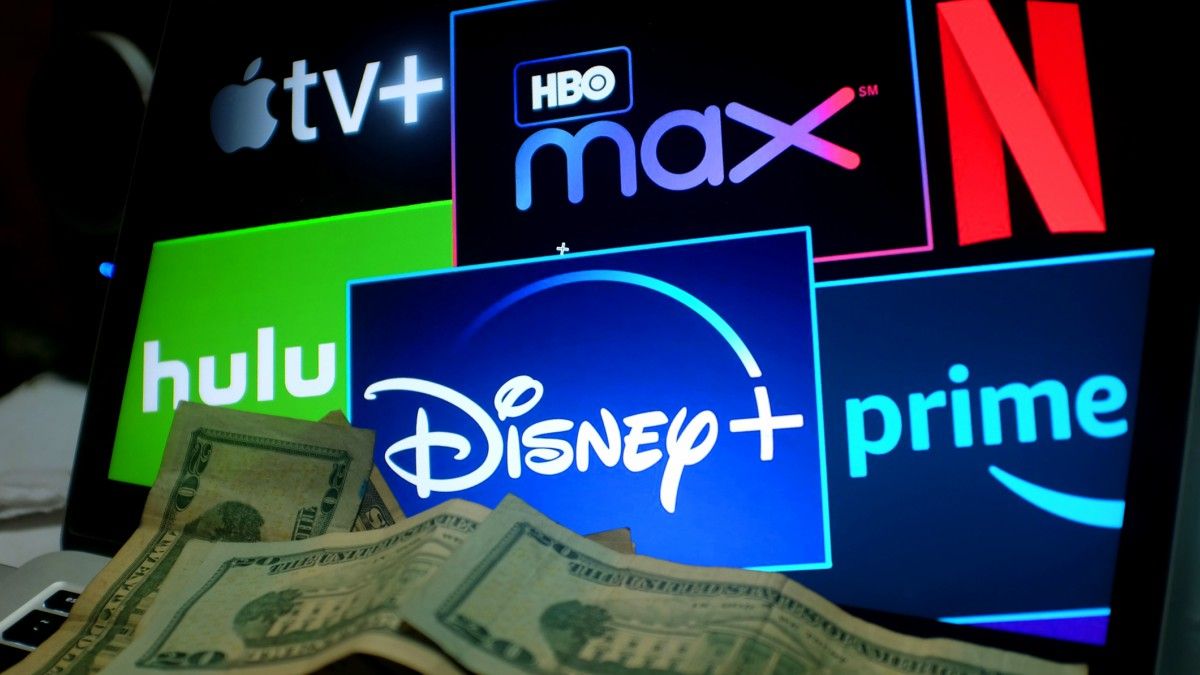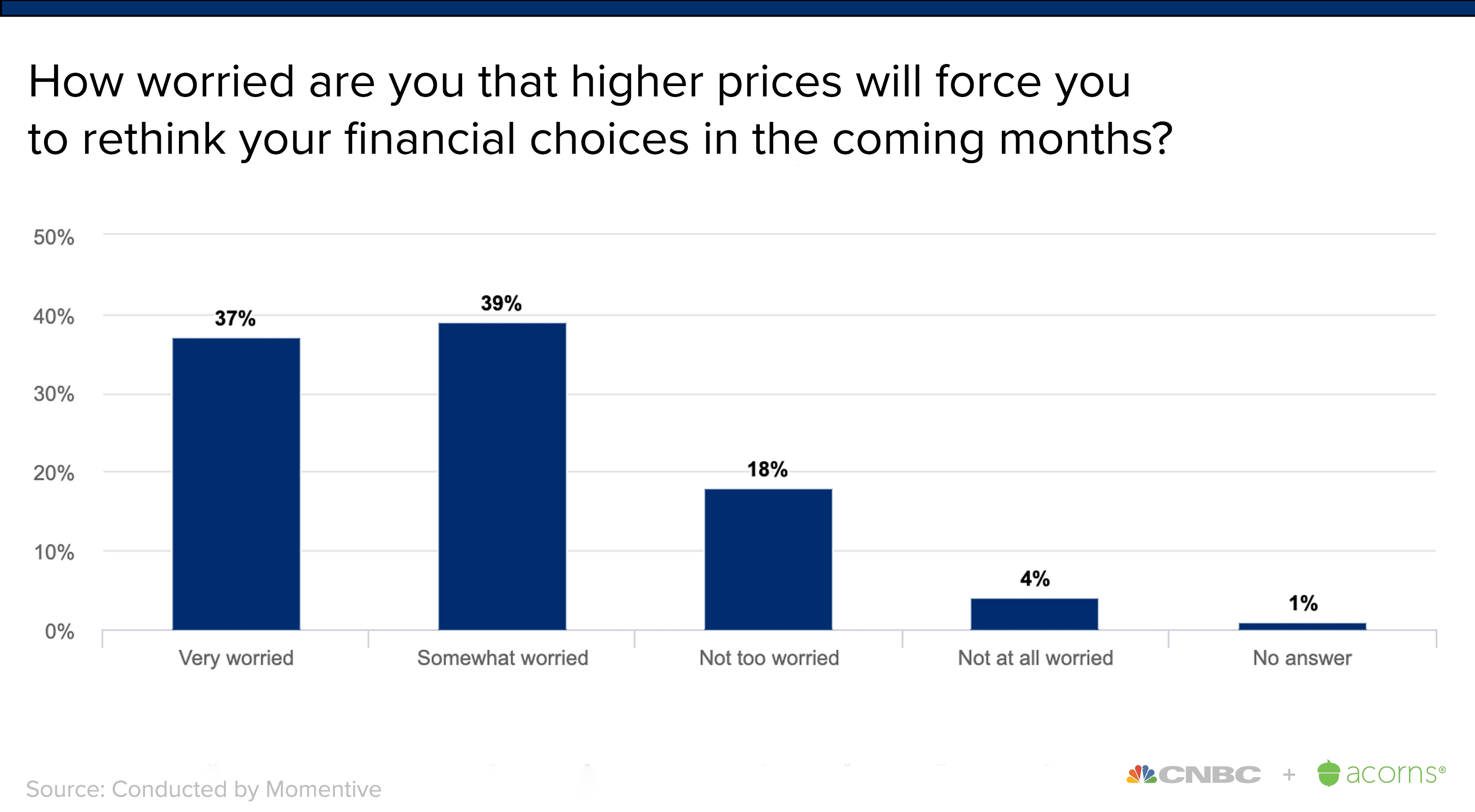This Is How the Soaring Inflation Is Affecting American Families

With inflation rising around the world, Americans are feeling the urge to cancel their subscriptions to streaming and entertainment platforms to be able to afford more basic needs.
Inflation rose at its fastest pace in more than 40 years last month in the US, as the cost of food, gasoline, and housing rose worldwide.
The US Department of Labor announced on April 12 that the Consumer Price Index jumped 8.5% in March from the previous 12 months, the highest jump since 1981.
As a result, about 36% of Americans are considering canceling their monthly subscription to Netflix or Amazon Prime to adjust their spending, according to a survey by Momentive for CNBC. 35% of people across America have already canceled their subscriptions via platforms to save their money.
Tightening the TV entertainment portfolios does not concern just American families. In the UK, after a decade of near-constant growth for streaming services, the number of homes paying for at least one subscription service fell by 215,000 units at the start of 2022, according to a report by Kantar Worldpanel.
Kantar's report pointed out that the biggest loser is Disney +. It found that while Amazon Prime and Netflix were deemed "indispensable" services, 12% of its UK Disney+ customers pulled out—three times the rate recorded in the last quarter of 2021.
Budget-Readjustment
The CNBC + Acorns Invest in You survey conducted by Momentive revealed that inflation is weighing heavily on Americans' minds. It showed that 48% think about the soaring prices all the time. The online poll was conducted on March 23-24 with a sample of 3,953 adults.
75% of Americans participating in the study disclosed that they are worrying that higher prices will force them to readjust their financial choices in the coming months.
On another side, the Moody’s Analytics analysis found that the Inflation is costing the average U.S. household an additional $296 per month. Observers expect that it will get worse before it gets better.
CNBC pointed out that: “Still, there hasn’t been a significant impact on consumer spending, although retail sales grew at a slower pace than expected in February.”
The study listed the main daily routine activities for Americans that were impacted by inflation. The survey emphasized that 53% have cut back on the dining out activity, stressing that dining out was the biggest area of change for American families. They have also changed their driving habits. By driving less than usual and canceling monthly subscriptions, among other things.
Low-Income, Worst Impact
The CNN report highlighted an important feature of the inflation impact. It stressed that although America's rising inflation is inflicting pain on household budgets across the United States, not everyone is affected in the same way.
The Federal Reserve Governor Lael Brainard stated that while economic data shows the general rise of prices, it doesn't tell the story of individual groups.
"Today, inflation is very high, particularly for food and gasoline. All Americans are confronting higher prices, but the burden is particularly great for households with more limited resources," Brainard said at the Minneapolis Fed's Spring 2022 Institute Research Conference.
Lael Brainard added that Lower-income families spend 77% of their income on necessities, compared to only 31% spent on necessities by higher-income households. Worse, lower-income families are already making the most economic choices. Thus, they have fewer alternatives, and it is not possible for them to switch to less-costly financial choices.
She gave the example of the price of breakfast cereal. If it increases across the board, for example, a higher-income household that used to buy a brand name product could switch to a store brand to save money. But a household that already buys the store brand doesn't have the same option.
It is worth noting that the Bureau of Economic Analysis tracking the Consumer Price Index compiled by the Labor Department, and the Personal Consumption Expenditures Price Index in the United States, revealed that both prices have climbed to their highest level in 40 years in February.
Canceling Entertainment Subscriptions
Although Netflix is still the most popular streaming platform, the company reported that it lost 200,000 subscribers in the first quarter of 2022. It is expected to add 2.5 million subscribers, while it expects to lose another two million subscribers in the second quarter of this year.
The report resulted in a 25% stock down in the post-closing trading period. The company's fourth-quarter profit was $1.5 billion, down from $1.7 billion in the previous quarter. Revenue jumped 9.8% to $7.8 billion.
Despite adding more than 8 million subscribers in the last quarter, Netflix saw a decline of more than 20% in January after it announced that it expected to see a slowdown in its growth in the first quarter of 2022.
Netflix blamed the slow growth on rising subscriber prices and highly anticipated content that didn't hit the platform until March.
Matthew Harrigan, an analyst at Benchmark, expected Netflix to record 1.2 million net subscriber growth, minus one million due to the loss of Russian subscribers.
Save Money
Kantar found that the slowdown and cancellation of subscriptions pattern does not only affect the American families rather the British families are through similar conditions. About 16.9 million households in the UK had at least one subscription service, and on average British households subscribed to 2.4 services at the end of the first quarter of 2022.
But while the first quarter of 2022 saw steady growth of 1.29 million new subscriptions, it was outpaced by 1.51 million cancellations, with half a million people attributing the cancellation to “saving money.”
Netflix is consistently ranked first in importance no matter what platform it is on. But for the likes of Disney+, the ramifications are huge.
Kantar expected similar numbers to a Momentive survey, finding that 28% of people were looking to cancel at least one of their streaming services in order to save money.












